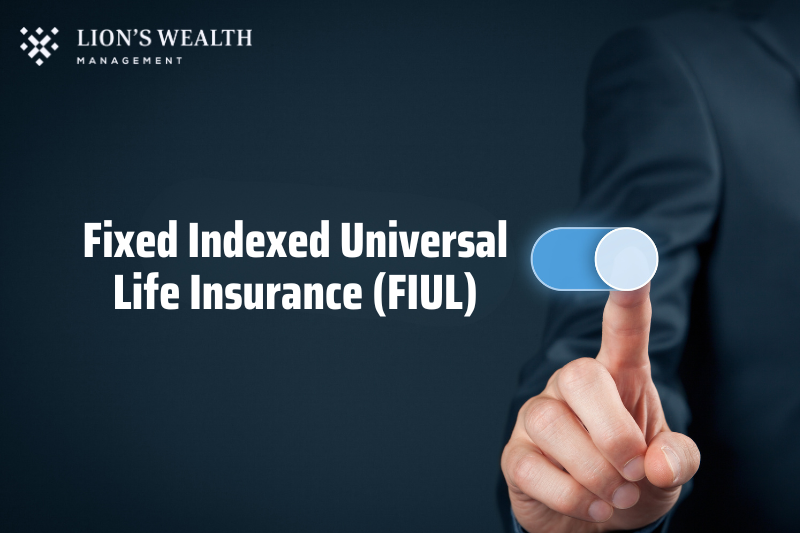All Categories
Featured
Table of Contents
1), commonly in an effort to defeat their category averages. This is a straw man disagreement, and one IUL individuals love to make. Do they contrast the IUL to something like the Vanguard Overall Stock Market Fund Admiral Show to no load, an expenditure proportion (EMERGENCY ROOM) of 5 basis factors, a turnover proportion of 4.3%, and a phenomenal tax-efficient record of circulations? No, they compare it to some terrible actively managed fund with an 8% lots, a 2% EMERGENCY ROOM, an 80% turnover proportion, and a horrible record of temporary capital gain distributions.
Mutual funds typically make annual taxable circulations to fund proprietors, even when the value of their fund has actually dropped in worth. Common funds not just require revenue reporting (and the resulting yearly taxation) when the common fund is rising in value, but can also enforce earnings taxes in a year when the fund has dropped in value.
You can tax-manage the fund, collecting losses and gains in order to decrease taxed distributions to the financiers, yet that isn't somehow going to transform the reported return of the fund. The ownership of mutual funds might need the shared fund owner to pay approximated taxes (indexed universal life leads).

IULs are easy to position to make sure that, at the proprietor's death, the beneficiary is exempt to either earnings or inheritance tax. The same tax obligation reduction techniques do not work virtually also with mutual funds. There are numerous, often costly, tax obligation catches connected with the timed trading of mutual fund shares, catches that do not apply to indexed life insurance policy.
Opportunities aren't really high that you're going to undergo the AMT as a result of your common fund distributions if you aren't without them. The remainder of this one is half-truths at finest. As an example, while it is true that there is no income tax obligation because of your successors when they inherit the profits of your IUL policy, it is also true that there is no income tax obligation due to your successors when they acquire a shared fund in a taxed account from you.
Wfg Iul
There are better methods to prevent estate tax obligation concerns than buying investments with low returns. Mutual funds may create revenue taxes of Social Security advantages.

The development within the IUL is tax-deferred and might be taken as tax obligation cost-free income using finances. The policy proprietor (vs. the shared fund supervisor) is in control of his/her reportable revenue, hence allowing them to lower or perhaps get rid of the taxation of their Social Safety and security benefits. This is fantastic.
Below's one more very little concern. It holds true if you get a mutual fund for say $10 per share right before the circulation day, and it distributes a $0.50 circulation, you are after that mosting likely to owe tax obligations (possibly 7-10 cents per share) although that you have not yet had any kind of gains.
In the end, it's truly concerning the after-tax return, not exactly how much you pay in taxes. You're likewise probably going to have more money after paying those tax obligations. The record-keeping needs for owning shared funds are significantly extra intricate.
With an IUL, one's records are maintained by the insurance provider, duplicates of yearly statements are sent by mail to the owner, and circulations (if any kind of) are completed and reported at year end. This is additionally type of silly. Of course you ought to keep your tax obligation records in situation of an audit.
Meaning Of Universal Life Insurance
Rarely a factor to acquire life insurance. Shared funds are typically component of a decedent's probated estate.
Furthermore, they are subject to the delays and costs of probate. The earnings of the IUL policy, on the other hand, is constantly a non-probate circulation that passes outside of probate straight to one's named beneficiaries, and is therefore not subject to one's posthumous lenders, unwanted public disclosure, or similar delays and expenses.
Medicaid incompetency and life time revenue. An IUL can give their proprietors with a stream of earnings for their whole life time, regardless of how lengthy they live.

This is valuable when organizing one's affairs, and converting properties to revenue before an assisted living facility confinement. Mutual funds can not be transformed in a comparable fashion, and are usually thought about countable Medicaid properties. This is one more dumb one advocating that inadequate individuals (you understand, the ones that require Medicaid, a government program for the poor, to spend for their retirement home) ought to use IUL rather than shared funds.
Maximum Funded Insurance
And life insurance policy looks horrible when compared relatively versus a pension. Second, individuals who have money to buy IUL above and beyond their retired life accounts are going to have to be terrible at taking care of cash in order to ever before get Medicaid to pay for their assisted living facility costs.
Chronic and terminal illness rider. All policies will enable a proprietor's simple accessibility to money from their policy, frequently waiving any type of surrender penalties when such people suffer a significant health problem, require at-home treatment, or end up being restricted to a nursing home. Common funds do not provide a similar waiver when contingent deferred sales charges still use to a mutual fund account whose owner requires to sell some shares to fund the expenses of such a remain.
Index Universal Life Insurance Tax Free
Yet you reach pay even more for that advantage (motorcyclist) with an insurance plan. What a great deal! Indexed universal life insurance gives survivor benefit to the beneficiaries of the IUL owners, and neither the proprietor nor the recipient can ever before lose cash because of a down market. Shared funds offer no such warranties or fatality benefits of any kind of kind.
Currently, ask on your own, do you really require or want a survivor benefit? I definitely do not require one after I get to monetary self-reliance. Do I desire one? I mean if it were affordable enough. Certainly, it isn't economical. Usually, a purchaser of life insurance policy pays for real expense of the life insurance policy advantage, plus the prices of the plan, plus the profits of the insurance provider.
Ul Mutual Insurance
I'm not totally certain why Mr. Morais included the whole "you can not lose money" again right here as it was covered quite well in # 1. He simply desired to duplicate the very best marketing point for these things I suppose. Again, you don't shed small dollars, but you can lose genuine bucks, as well as face serious possibility expense due to low returns.

An indexed global life insurance coverage policy owner might exchange their plan for an entirely different policy without activating revenue taxes. A common fund owner can stagnate funds from one common fund business to an additional without offering his shares at the previous (therefore activating a taxed event), and redeeming brand-new shares at the last, typically subject to sales charges at both.
While it holds true that you can exchange one insurance coverage for one more, the factor that people do this is that the very first one is such an awful plan that also after acquiring a brand-new one and experiencing the early, adverse return years, you'll still come out in advance. If they were marketed the appropriate plan the initial time, they should not have any type of desire to ever trade it and undergo the early, adverse return years once again.
Table of Contents
Latest Posts
Iul L
Best Iul Policies
Financial Foundation Iul
More
Latest Posts
Iul L
Best Iul Policies
Financial Foundation Iul